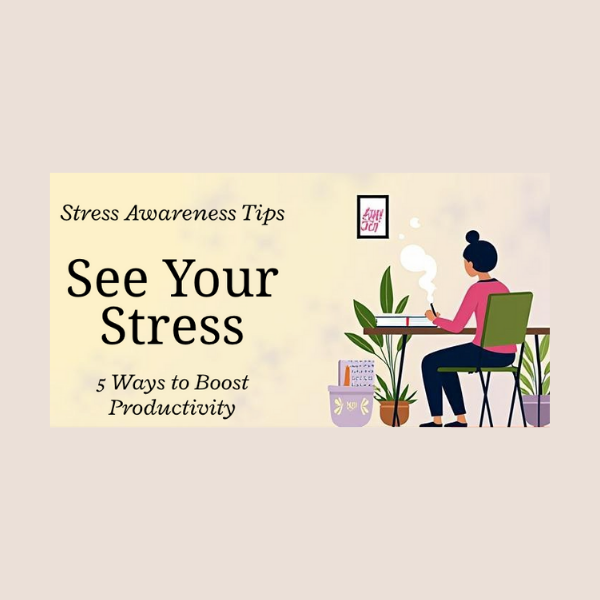Your partner mentions you seem "on edge," your coworker asks if you're okay, and even your barista gives you a concerned look, yet you're convinced you're handling everything just fine.
Sound familiar? You're not alone, and you're definitely not imagining it. When we're deep in the thick of stress, we often become blind to our own warning signs. It's like being inside a storm while everyone else can see the dark clouds gathering around us. The truth is, chronic stress has a sneaky way of becoming our new normal. We adapt to the constant tension, the racing thoughts, and the perpetual feeling of being "behind" on everything. Meanwhile, our bodies and minds are screaming for relief, and everyone around us can hear it loud and clear.
Why We Miss Our Own Stress Signals
When stress becomes chronic, our internal alarm system gets worn out. We stop noticing the physical tension in our shoulders, the way we snap at small inconveniences, or how we've been surviving on coffee and willpower for weeks. It's a psychological phenomenon called "stress blindness." We literally can't see what's right in front of us. But here's the thing: recognizing this blind spot is the first step toward reclaiming your peace of mind and productivity. When we're constantly in survival mode, our creativity plummets, our decision-making suffers, and we become far less effective at work and in our relationships.
5 Ways to Relieve Stress and Boost Your Personal Productivity
- Create micro-boundaries throughout your day: Set specific times to check emails, take actual lunch breaks, and establish a hard stop for work. Even 10-minute buffers between tasks can reset your nervous system and help you approach challenges with fresh energy.
- Practice the "two-minute rule" for mental clutter: When anxious thoughts spiral, write them down for exactly two minutes, then close the notebook. This brain dump technique clears mental space and prevents stress from hijacking your focus during important tasks.
- Build movement into your routine, not around it: Instead of finding time for exercise, weave it into existing activities. Take calls while walking, do desk stretches between meetings, or park farther away. Small, consistent movement reduces cortisol and increases mental clarity.
- Master the art of strategic "no: Before automatically saying yes to requests, pause and ask: "Does this align with my priorities right now?" Protecting your time and energy isn't selfish. It's essential for showing up fully for what matters most.
- Establish a "shutdown ritual" to separate work from life: Create a specific sequence that signals the end of your workday, whether it's closing your laptop, changing clothes, or taking three deep breaths. This mental boundary helps you fully transition into personal time and recharge properly.
Your Stress Is Valid, and So Is Your Need for Change
The people in your life aren't pointing out your stress to criticize you. They're concerned because they care. Your stress is real, it's affecting you more than you realize, and most importantly, you have the power to change it.
You don't have to wait until you're completely burned out to take action. Small, consistent changes in how you manage stress can dramatically improve both your well-being and your ability to tackle life's challenges with clarity and confidence.
Ready to break free from the stress cycle that's been holding you back? Start with just one technique from the list above this week. Your future self, and everyone who cares about you, will thank you for taking that first step toward a calmer, more productive life.
What's one stress signal you've been ignoring? Take 30 seconds right now to acknowledge it, then choose one small action to address it today!

.svg)


.png)






